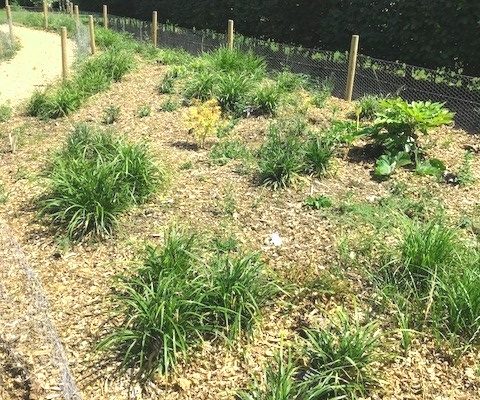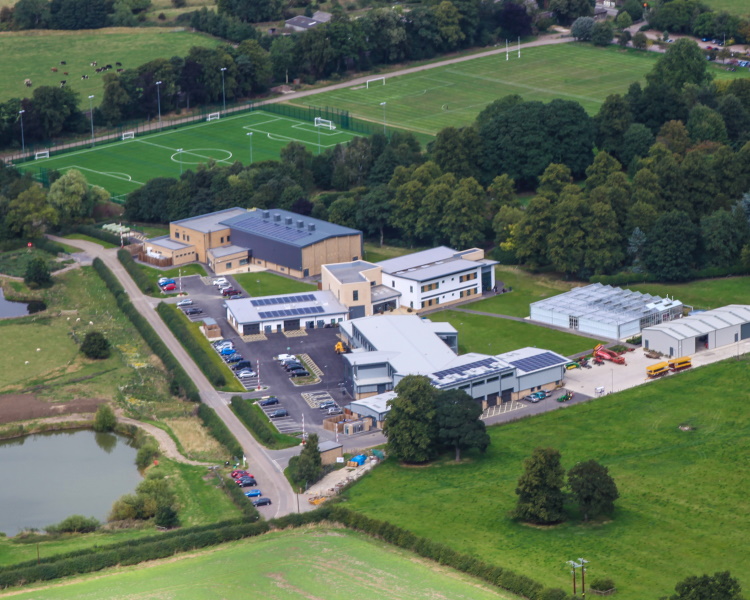Academics from our Brooksby Campus and DMU have been using DNA analysis to establish the identity of a National Plant Collection housed at our Brooksby Campus, recently publishing an article in the scientific journal, Plants!
Working alongside scientists from the Biomolecular Technology Group at DMU, and the CSIR North-East Institute of Science and Technology in India, former Brooksby Horticulture Lecturers, John Abson and Paul Greene, have been part of a DNA barcoding study aiming to classify our National Collection of Liriope and Ophiopogon plants.
The purpose of the study was to clarify the species of the plants in the collection. The scientists were ultimately successful in assigning most of the plants to an individual species, allowing them to confirm the identity of around 70% of the plants, with the remaining 30% showing a range of mistaken identities at the species and genus level.
The collection, which was originally established at our Brooksby Campus in 1996-8, caught the eye of former Horticulture Lecturer, John Abson, during his time at Brooksby. John’s interest stemmed from his time working in Japan, which is where Liriopes and Ophiopogons originate. This interest prompted him to contact Professor Adrian Slater from the Biomolecular Technology Group at De Montfort University. DMU’s Biomolecular Technology Group have a strong interest in using DNA analysis to identify medicinal plant species. They also use DNA analysis to confirm the authenticity of traditional herbal medicines.
As some species of Liriopes and Ophiopogons have been used to treat medical issues in Far Eastern cultures, the team from DMU were highly interested in Brooksby's collections, and were able to secure funding to carry out DNA analysis of the plants.
Paul Greene, former Brooksby Horticulture Lecturer, said ‘Partnering with DMU to carry out this research has been an excellent success, and has certainly raised the profile of the College within the Plant Heritage group’ The authors of the Plants article also acknowledged the great help of Brooksby Glasshouse Technician, Joanne Wilkes, who has taken a leading role in cultivating and maintaining the national collections at our Brooksby Campus.
To find out more, you can read the full article - ‘Molecular Verification of the UK National Collection of Cultivated Liriope and Ophiopogon Plants’ at www.mdpi.com/journal/plants. Plants is a peer-reviewed, open-access scientific journal which provides an advanced forum for research findings in areas related to plant function, its physiology, biology, taxonomy, stresses, and its interactions with other organisms.
Our Favourite Liriope & Ophiopogon Facts!
- They’re commonly known as Aztec grass, Mondo grass, Monkey grass and Snake’s beard, amongst other names.
- They’re widely cultivated in many parts of the world as excellent groundcover in various landscapes. This is because they’re hardy and very resistant to pests and diseases.
- The UK National Plant Collections of Ophiopogon and Liriope are held here at Brooksby!
- The collection was donated to the BMC around 20 years ago, and has been maintained by the propagation of plants in our glasshouse facilities. We also have some planted out on our 850 acre Brooksby Estate.
- There are nearly 65 species under the genus Ophiopogon and nearly 8 species under the genus Liriope, which are native to tropical, subtropical and temperate regions from East Asia to South East Asia to Japan.
Click here to find out more about Horticulture courses!



